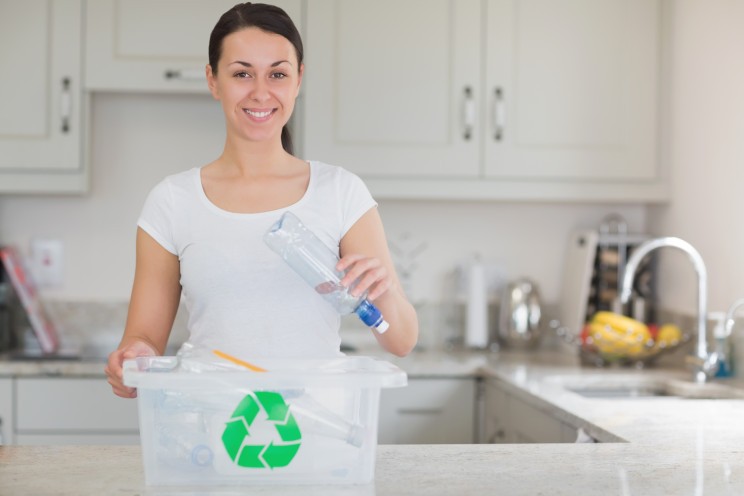
One of the most harmful and polluting materials on our planet is undoubtedly plastic. For this reason, home improvement experts Habitissimo give us some useful tips on how to reduce the amount of plastic that we use in our homes in Italy on a daily basis.
Choose natural materials
Wood is always a better option than PVC furniture in the home. In addition, it's a good idea to opt for brands and models made from recycled materials which are now widely available in Italy. Find out about more environmentally friendly materials to make your home more sustainable.
Wooden or ceramic floors
It is often said that wooden floors are very delicate, which is why many people choose vinyl nowadays to decorate their homes. If you want to help the environment and bet on a greener option, it is best to choose porcelain tiles that imitate wood but are in fact natural.
Textiles and natural fibres
In all styles of decoration you can try to integrate natural fibres and fabrics into your home. These are products that also give the home a much warmer look. Not exclusive to items such as curtains, carpets and household linen, natural materials can also be used to make objects such as lamps or a wicker framed mirror for example. The good news is that nowadays, products like these are not difficult to find at all on the Italian high street market, with large stores like IKEA offering several solutions.
Reusable bags
It seems like an obvious point, but the truth is that we are still using plastic bags a lot for our purchases. The alternative is to always carry practical fabric bags with you.
Move away from plastic bottles
In the best of cases, your city will have pure, drinkable water without too much lime. Yet even in the cases of those living in a city with the purest water, people tend to buy bottled water in the belief that it is simply better water. There are studies that disprove this and state that, in fact, in these plastic bottles you can find different chemicals which could be more harmful. If, however, you don't want to drink the water directly from the tap, filters are a valid option. They involve a small investment but it's worth it in order to say goodbye to bottled water and therefore to plastic as well!
Avoid PVC kitchen utensils
It is important to carefully observe the materials used to make dishes, glasses and other kitchen utensils. On many occasions plastic derivatives are used, so without realising it, we are choosing models that are not ecological at all. The good news is that there are many interesting options on the market. There's nothing quite like using traditional glass glasses or ceramics plates. There are also wooden options such as serving plates or spoons for example.